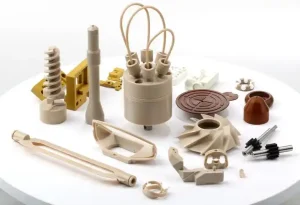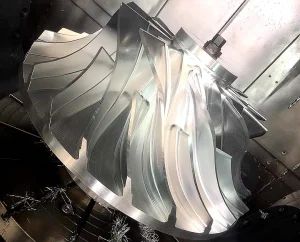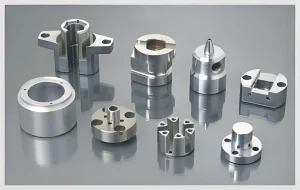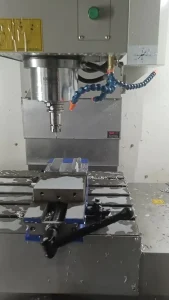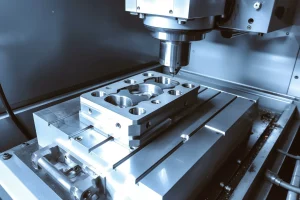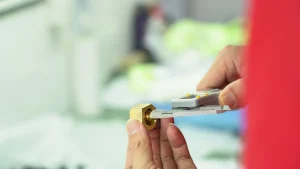Introduction
In industrial equipment, if there is a component that can be like a “sturdy steel armor”, tightly protecting the core components and allowing the internal structure to operate in an orderly manner, then the equipment would be so reliable! Our stainless steel CNC porous precision mechanical sleeve is just like this~Purchasing experts and engineers, come and take a look!
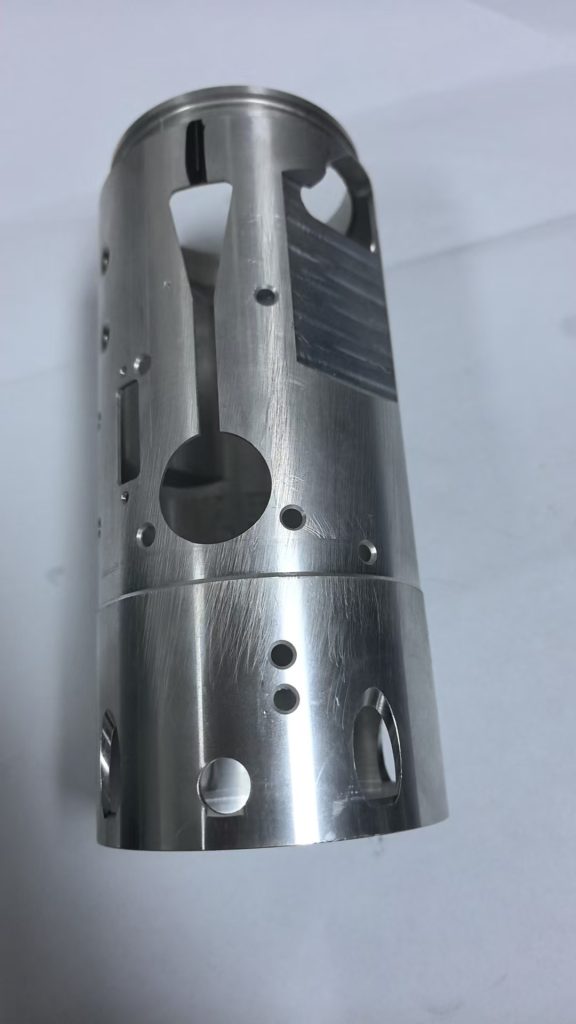
1、 Material composition
This part is made of 304 stainless steel, with the main components being chromium (Cr) 18% -20%, nickel (Ni) 8% -10.5%, carbon (C) ≤ 0.08%, manganese (Mn) ≤ 2%, silicon (Si) ≤ 1%, phosphorus (P) ≤ 0.045%, and sulfur (S) ≤ 0.03%. 304 stainless steel has excellent corrosion resistance, heat resistance, and mechanical properties, and is widely used in various industrial fields.
2、 The entire process of CNC machining
This seemingly simple cylindrical module contains 17 holes of different sizes, 8 irregular grooves, and a top annular protrusion. Our processing flow is the best footnote to the word “precision”:
1. Digital twin modeling: use creo software to reconstruct the customer’s 3D drawings, focus on optimizing the hole location distribution – avoid tool interference during processing, and at the same time simulate the assembly scene, adjust the notch angle in advance (such as 30 ° chute to reduce stress concentration).
2. Five axis linkage rough machining: A five axis machine tool is used, and a hard alloy end mill is used to quickly remove the excess (retaining 0.3mm of precision machining), avoiding deformation caused by single cutting too deep.
3. Constant temperature precision machining: In a 20 ± 1 ℃ workshop, a high-speed spindle is used in conjunction with ceramic coated cutting tools to complete “micrometer level” machining of hole positions and slots – for example, the positional error of a Φ 5mm circular hole is less than 0.015mm.
4. Three coordinate full inspection+surface treatment: Scan the full size with a Hexagon coordinate measuring instrument, focusing on checking the coaxiality of the hole position and the perpendicularity of the groove; Finally, passivation treatment (soaking in nitric acid solution) is carried out to enhance the surface corrosion resistance.
3、 Processing precautions
These porous/irregular structured parts are most likely to be planted in three places, and we use our experience to help you avoid pitfalls:
1. Material internal stress release: 316L stainless steel is prone to stress deformation during cutting. We will first perform a 48 hour natural aging+vibration stress relief treatment to avoid size shrinkage after processing.
2. Tool selection: When machining deep grooves (depth>5mm), use tools with internal cold holes (coolant directly washes the cutting edge) to prevent chip accumulation and burrs.
3. Tolerance grading control: Non fitting surfaces are relaxed to ± 0.05mm to reduce processing costs; The key mating surface is strictly stuck within ± 0.02mm – ensuring performance while helping customers save budget.
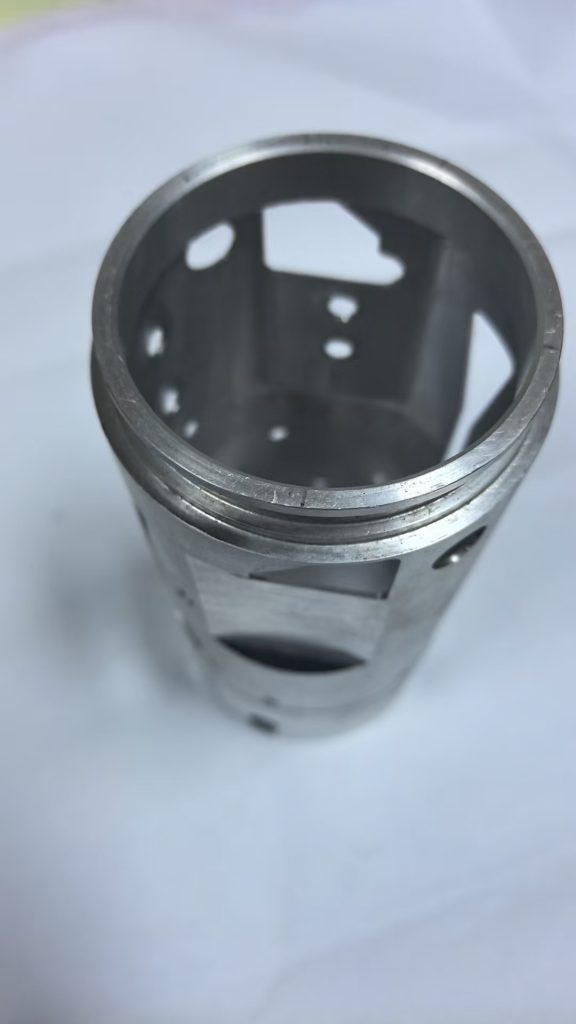
4、 Practical application
Case 1: MedTech Medical Equipment Company from Germany
This German company specializes in high-end medical imaging equipment. Previously, the cavities used were either cast (with poor accuracy and inaccurate internal sensors) or made of plastic (with poor strength and corrosion resistance, which “broke” shortly after use).
After using our CNC processed stainless steel porous precision mechanical sleeve, it is like “opening up a new world”:
1. The precision of CNC machining is high, and the internal sensors are installed seamlessly, directly improving the detection accuracy of the equipment by 15%;
2. Stainless steel is “corrosion-resistant and has high strength”, which extends the service life of equipment by 2 times in humid and disinfected environments in hospitals;
3. The hollow and slot design of the cavity is “reasonable and precise”, and the internal cables and cooling pipes are “neatly routed”, reducing the equipment failure rate by 20%. Nowadays, MedTech’s medical equipment is “extremely popular” in European hospitals. The purchasing manager said, “This mechanical sleeve is the precise guardian of our equipment
Case 2: ChemTech Chemical Company in the United States
ChemTech engages in chemical testing and small-scale production, with extremely high requirements for equipment’s “corrosion resistance and strength”. Our stainless steel chamber perfectly meets their needs:
1. Corrosion resistant 304 stainless steel is as stable as an old dog in acidic and alkaline reagent environments, eliminating the need for frequent cavity replacement and reducing maintenance costs;
2. High precision CNC machining enables precise docking of reaction components inside the cavity, improving the consistency and accuracy of chemical reactions and ensuring more stable product quality. Nowadays, ChemTech’s small-scale chemical equipment has become a hot commodity for laboratories and small factories, with a continuous stream of orders.
5、 Conclusion
Our CNC prototype foreign trade company, with advanced processing equipment and a professional technical team, can provide customers with high-quality and high-precision stainless steel CNC machined parts. Whether it’s small-scale customization or large-scale production, we can meet the needs of our customers and provide high-quality products and services to customers around the world. Welcome buyers and engineers to contact us for more detailed information and customized solutions!

